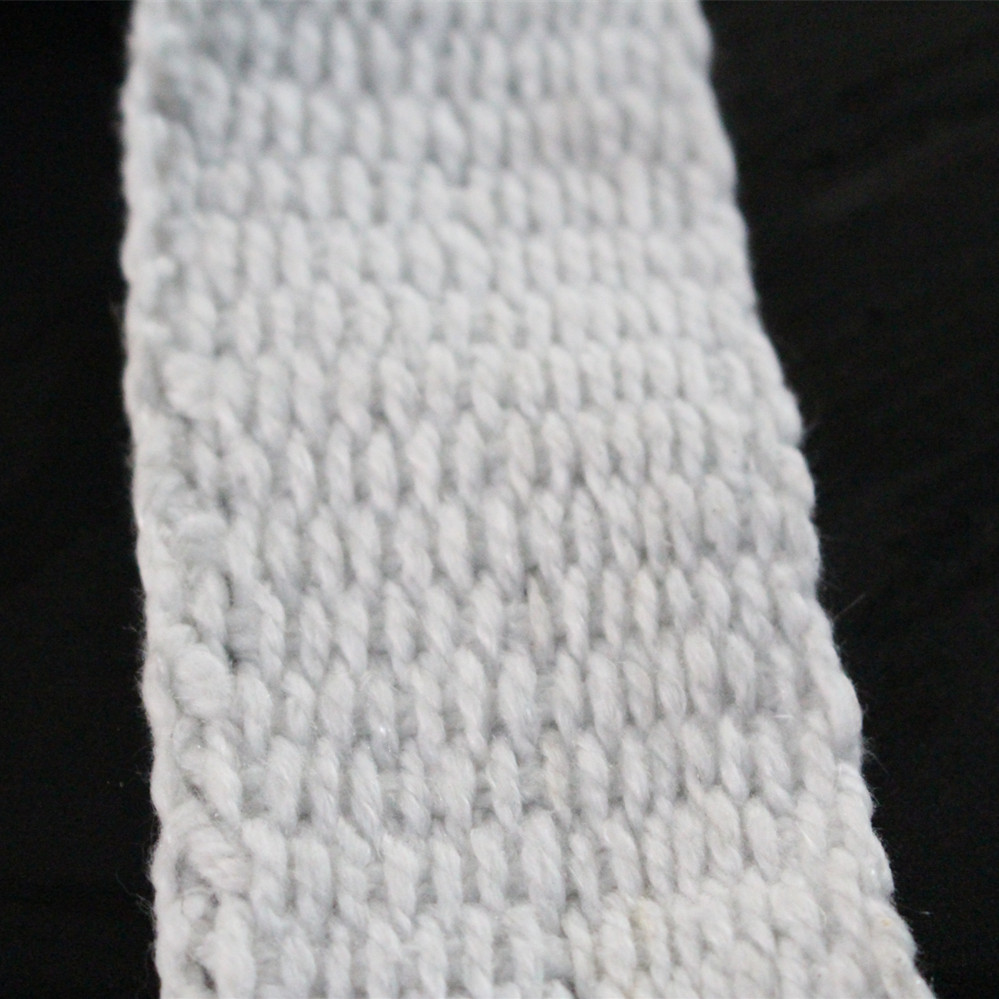Taśma z włókien ceramicznych to wiodący w branży materiał izolacyjny zaprojektowany specjalnie z myślą o środowiskach o wysokiej temperaturze. Wykonany z włókien glinokrzemianowych o wysokiej czystości, zapewnia wyjątkową odporność na ciepło, dzięki czemu jest idealnym rozwiązaniem do izolacji urządzeń narażonych na działanie ekstremalnych temperatur. Przyjrzyjmy się kluczowym cechom i zaletom, które sprawiają, że taśma z włókien ceramicznych jest najlepszym wyborem do izolacji wysokotemperaturowej w różnych zastosowaniach przemysłowych.
Taśma z włókien ceramicznych wytrzymuje ciągłe temperatury do 1260°C (2300°F), co czyni ją niezawodnym izolatorem w środowiskach o wysokiej temperaturze. Ta wyjątkowa odporność na ciepło sprawia, że idealnie nadaje się do zastosowań takich jak:
W branżach takich jak obróbka metali, przetwórstwo petrochemiczne i wytwarzanie energii, gdzie ekstremalne temperatury są na porządku dziennym, taśma z włókien ceramicznych zapewnia krytyczną warstwę ochronną, która zapobiega utracie ciepła, zwiększa efektywność energetyczną i chroni otaczające komponenty przed uszkodzeniami cieplnymi.
Jednym z głównych powodów, dla których taśma z włókna ceramicznego sprawdza się w izolacji wysokotemperaturowej, jest jej niska przewodność cieplna. Ta właściwość zapewnia minimalizację przenoszenia ciepła, dzięki czemu taśma stanowi skuteczną barierę pomiędzy gorącymi powierzchniami a otaczającym środowiskiem. Rezultatem jest:
Niezależnie od tego, czy używana jest do izolacji pieców, kotłów czy rurociągów przemysłowych, taśma z włókien ceramicznych pomaga utrzymać stabilną temperaturę, optymalizując wydajność operacyjną i zmniejszając zużycie energii.
Taśma z włókna ceramicznego jest z natury ognioodporna i charakteryzuje się doskonałą odpornością na płomienie, dzięki czemu idealnie nadaje się do zastosowań wymagających ochrony przeciwpożarowej. Jego niepalność i odporność na bezpośrednie działanie płomieni sprawiają, że nadaje się do:
Zapewniając barierę ognioodporną, taśma z włókien ceramicznych zmniejsza ryzyko awarii sprzętu i zapewnia zgodność z przepisami bezpieczeństwa pożarowego w branżach, w których zagrożenie pożarowe stanowi poważny problem.
Wzmocniona struktura taśmy z włókna ceramicznego, często ze zintegrowanym drutem ze stali nierdzewnej lub włóknami szklanymi, zapewnia doskonałą wytrzymałość na rozciąganie. Wzmocnienie to nadaje taśmie większą trwałość, nawet w trudnych warunkach mechanicznych, dzięki czemu nadaje się do:
Jego długotrwała wydajność w wymagających środowiskach zmniejsza częstotliwość konserwacji i wymiany, przyczyniając się do poprawy czasu sprawności operacyjnej.
Taśma z włókna ceramicznego jest wysoce odporna na szeroką gamę substancji chemicznych, w tym kwasy, zasady i rozpuszczalniki. Ta odporność chemiczna sprawia, że idealnie nadaje się do stosowania w takich gałęziach przemysłu jak:
Jego odporność na działanie środków chemicznych bez degradacji zapewnia stałą wydajność w czasie, nawet w środowiskach silnie korozyjnych. Ta trwałość zwiększa trwałość i niezawodność taśmy, szczególnie w środowiskach, w których odporność chemiczna ma kluczowe znaczenie.
Pomimo wysokiej wydajności termicznej i wytrzymałości mechanicznej taśma z włókna ceramicznego jest lekka, elastyczna i łatwa w obsłudze. Ta elastyczność pozwala na:
Łatwość montażu skraca przestoje podczas konserwacji i pomaga zminimalizować koszty pracy, dzięki czemu taśma z włókna ceramicznego jest opłacalnym rozwiązaniem do izolacji wysokotemperaturowej.
Taśma z włókna ceramicznego jest wykonana z naturalnie występujących minerałów i nie zawiera substancji niebezpiecznych, takich jak azbest. Dzięki temu jest to bezpieczny, nietoksyczny materiał, który spełnia rygorystyczne przepisy dotyczące ochrony środowiska i bezpieczeństwa. Podczas instalacji wytwarza minimalne ilości pyłu i włókien, zapewniając pracownikom czystsze i bezpieczniejsze środowisko pracy.
Taśma z włókna ceramicznego oferuje niezrównane korzyści w zakresie izolacji wysokotemperaturowej, co czyni ją najlepszym wyborem dla branż wymagających doskonałej odporności na ciepło, ochrony przeciwpożarowej i trwałości. Jego niska przewodność cieplna, elastyczność i odporność chemiczna sprawiają, że jest to wszechstronne i niezawodne rozwiązanie do izolacji sprzętu w ekstremalnych warunkach. Niezależnie od tego, czy chcesz poprawić efektywność energetyczną, chronić sprzęt przed uszkodzeniami cieplnymi, czy zapewnić zgodność z przepisami bezpieczeństwa przeciwpożarowego, taśma z włókna ceramicznego zapewnia wydajność niezbędną do zwiększenia bezpieczeństwa i wydajności operacyjnej.
Inwestując w taśmę z włókna ceramicznego, przemysł może zabezpieczyć swój sprzęt, obniżyć koszty energii i wydłużyć żywotność swoich systemów termicznych nawet w najtrudniejszych warunkach.
